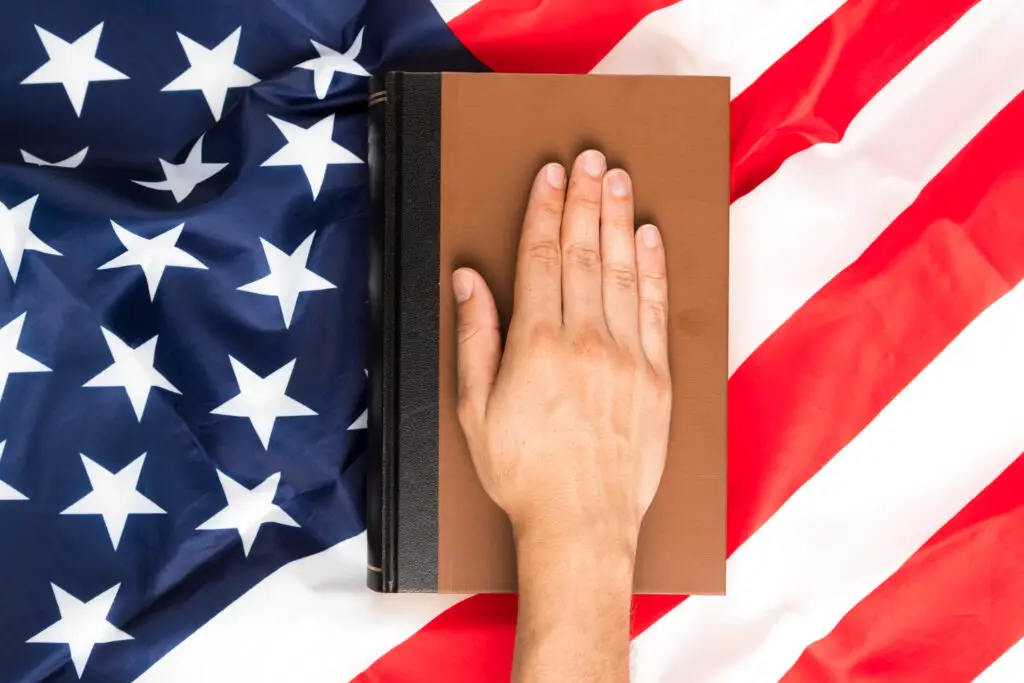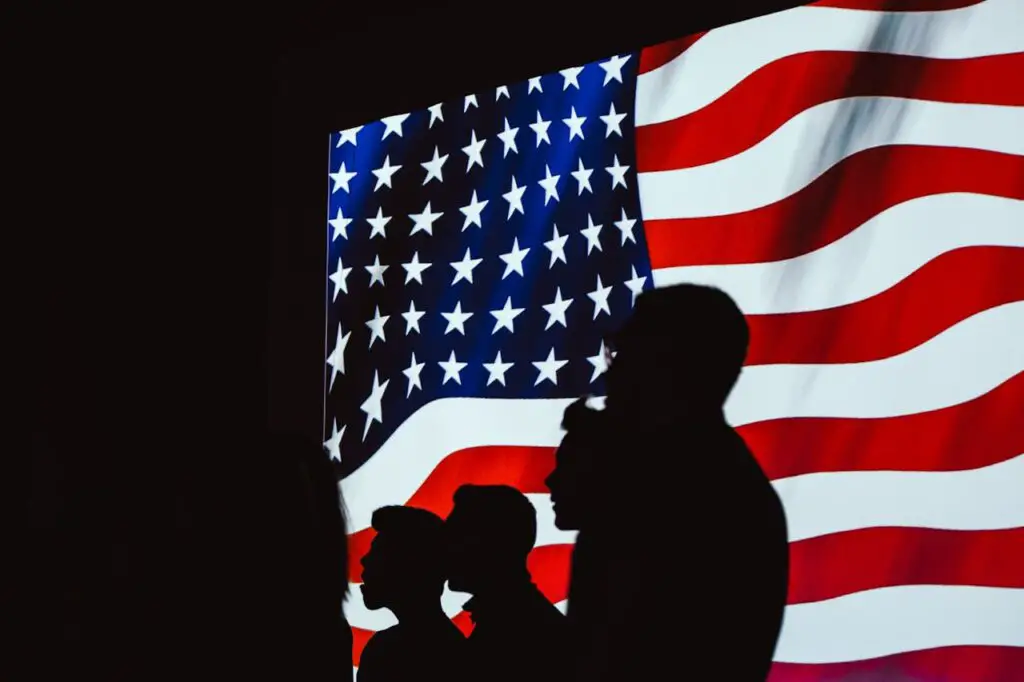10 Unspoken American Rules You Learn as a Kid But Never Say Out Loud

Every country has its own cultural playbook, but in America, many of the most important lessons are never written down or even talked about. They are the silent rules you pick up as early as kindergarten and carry with you for life—shaping how you talk, act, and even think. These rules are so ingrained that most Americans do not even realize they are following them. They are not taught in classrooms, but they are enforced through side-eyes, subtle corrections, and social pressure. From keeping your emotions in check to avoiding certain topics like the plague, here are ten rules that every American learns young but rarely puts into words—yet they govern everyday life more than most realize.
1. Do Not Talk About Money, Politics or Religion at the Table

From family dinners to holiday gatherings, Americans are subtly taught that some subjects are just too risky to bring up in casual conversation. Money, politics and religion top the list. These topics are seen as deeply personal and potentially explosive, and mentioning them can quickly turn a peaceful moment into a heated debate. Children grow up understanding that the best way to keep things friendly and avoid conflict is to steer clear of these controversial issues, especially in polite company. The result is a culture of small talk, polite smiles, and carefully chosen words that avoid stirring the pot.
2. Personal Space Is Not Optional—Respect the Invisible Bubble

One of the first things American kids learn—without anyone ever explicitly saying it—is to respect personal space. Whether standing in line, talking to someone, or sitting on a bus, there is an invisible bubble around each person that you are not supposed to pop. Getting too close is seen as invasive and rude. This rule is so deeply embedded that Americans often feel uncomfortable when people from other cultures stand closer or touch more during conversations. Personal space is not just about comfort—it is a boundary that communicates respect, safety, and social awareness.
3. Be Friendly, But Keep Your Distance

American friendliness is famous around the world, but there is a catch: it does not always mean what it seems. From childhood, Americans are taught to smile at strangers, say hello to neighbors, and be pleasant in public. But this friendliness often stops at the surface. You can be warm and polite without forming a real connection, and that is just how things work. Kids learn that asking “How are you?” is more of a greeting than a genuine question, and being friendly does not mean you are best friends. It is a social skill—a way to keep interactions smooth and non-confrontational.
4. Time Is a Resource—Do Not Waste It

The American obsession with productivity starts early. From the ringing school bells to timed standardized tests, children are trained to stick to schedules and use their time efficiently. Being late is seen as disrespectful, and wasting time—your own or someone else’s—is a major faux pas. This mindset carries into adulthood, where deadlines, meetings, and packed calendars are the norm. The unspoken rule is simple: time is valuable, and how you use it reflects your character. If you are not doing something productive, you are falling behind.
5. Independence Is a Virtue—Handle Things Yourself

The idea of self-reliance is one of the most cherished values in American culture, and it is drilled into kids from a young age. Whether it is tying your own shoes, solving your own problems, or earning your own money, independence is applauded. Asking for too much help can be seen as weakness, and children are often encouraged to “figure it out on your own.” This rule fosters a strong sense of individualism but can also make people hesitant to ask for support, even when they really need it. In America, doing things alone is often a badge of honor.
6. Always Look Like You Have It Together

“Never let them see you sweat” is not just a slogan—it is an unspoken rule most Americans live by. From school presentations to job interviews, the pressure to appear calm, capable and composed is constant. Even if someone is struggling on the inside, they are expected to keep it together on the outside. This cultural expectation teaches kids to put on a brave face, answer “I’m good” even when they are not, and keep personal problems out of public view. While it can promote resilience, it also leads to emotional isolation and a fear of appearing vulnerable.
7. Keep Your Cool—No Meltdowns in Public

Another unspoken rule drilled into American kids is to control their emotions, especially in public. Crying in a store, yelling on the street, or showing intense anger is not just embarrassing—it is frowned upon. Parents often scold their kids for “making a scene,” and this training sticks. By the time they are adults, Americans have learned to keep their public behavior composed and drama-free. This cultural expectation reinforces the idea that public spaces are meant to be calm and orderly, even if people are feeling anything but calm inside.
8. Your Job Is Who You Are—So Pick a Good One

From early on, American children are asked what they want to be when they grow up, not what kind of person they want to become. Career identity is a huge part of self-worth in American culture. People are judged—consciously or not—by what they do, how much they earn, and how busy they are. Success is not just about being happy or kind; it is about being productive and impressive. This rule turns career ambition into a lifelong race, and those who do not play the game often feel like outsiders.
9. Be Nice or Be Quiet

Another deeply rooted rule in American culture is the idea that honesty should never come at the expense of kindness. Kids are told, “If you do not have anything nice to say, do not say anything at all,” and that lesson stays with them. Harsh truths, criticism and blunt opinions are often softened, sugar-coated or avoided altogether. While this creates a polite society on the surface, it also leads to a lot of indirect communication and passive-aggressiveness. Americans learn to master the art of saying something without really saying it.
10. Fit In—But Also Stand Out Just Enough

One of the most confusing American lessons is the balance between conformity and individuality. Children are encouraged to “be yourself,” but they are also pressured to dress, talk, and act like everyone else to avoid being seen as weird. There is a narrow window for standing out—just enough to be interesting, but not so much that you challenge the group. This push-and-pull dynamic is everywhere, from high school cliques to workplace culture. The goal is to express yourself, but within socially acceptable limits.
Final Thoughts

These unspoken American rules are rarely written down or discussed openly, but they influence everything from daily interactions to lifelong goals. They teach people how to navigate society without making waves—how to be polite without being too personal, ambitious without appearing arrogant, and open without being vulnerable. For outsiders, these hidden rules can be baffling. For Americans, they are second nature. Understanding them is like decoding a cultural script that explains not just how people act—but why. They are the quiet framework behind everyday American life, shaping how people show up in the world, even when no one is looking.
Leave a Reply